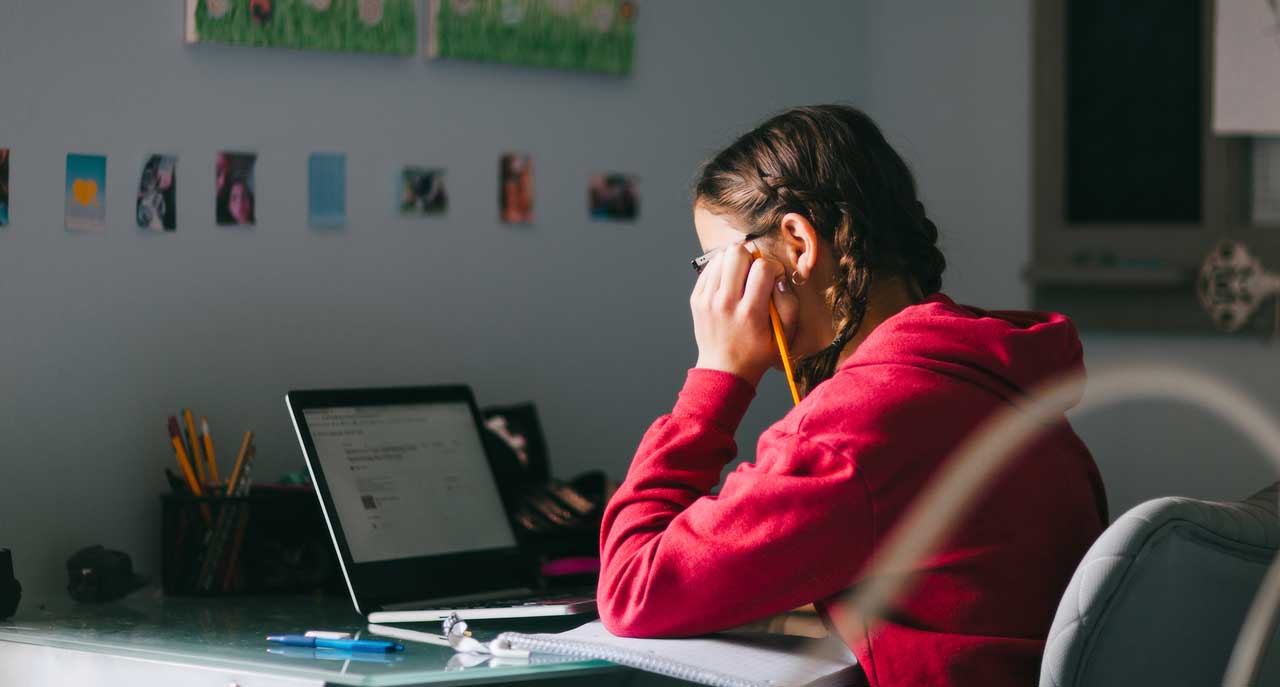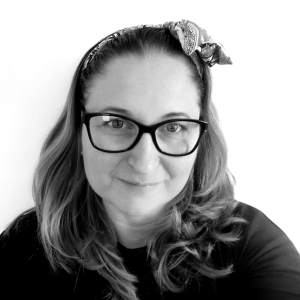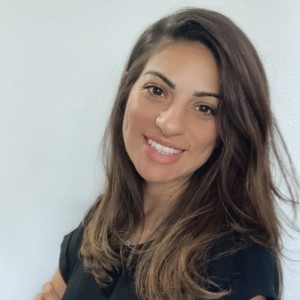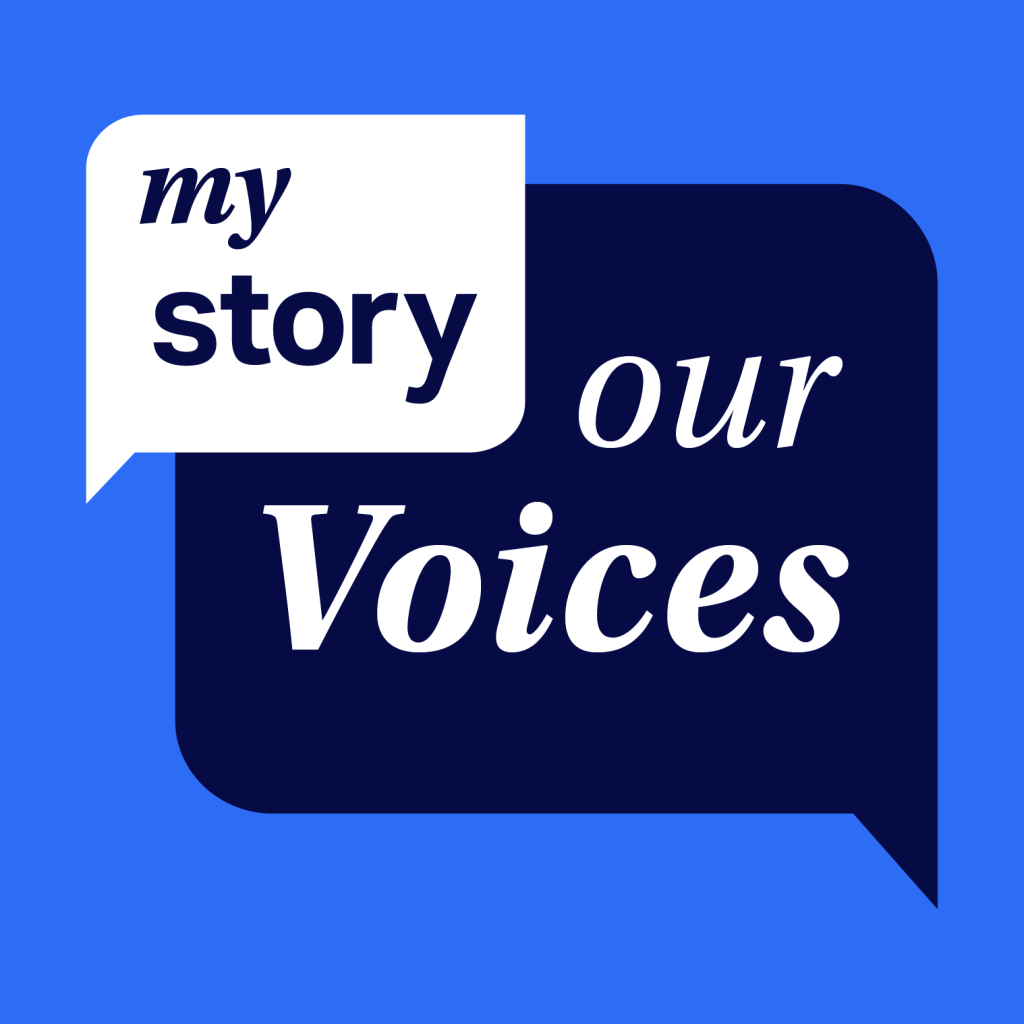Adina and Ari talk resilience in the face of childhood adversity
Join hosts James and Funda on this episode of My Story Our Voices, an NIQ DEI podcast, as they sit down with guests Adina Negut and Ariane Pereira to hear their stories about how they developed resilience as children by overcoming adversity.


Adina Negut
Bucharest, Romania
Senior Insight Analyst
Adina joined NielsenIQ in 2013. She is a self described creative Aquarius who enjoys making handmade crafts, floral arrangements and cooking. She is the wife of an amazing man and the mother of 2 beautiful girls.

Ariane Pereira
New York, New York, USA
Director, Omni Solutions Sales
Ari has been working for NielsenIQ for the past 10 years across Latin America and the US. Outside of work she is a life coach, guides meditation groups, is a Kung Fu Champion and loves to be in nature.
Lorem Ipsum…
Lorem ipsum dolor sit amet, consectetur adipiscing elit. Duis felis arcu, pulvinar a ipsum vel, elementum pharetra massa…
Ariane recommends watching this TedTalk from Brene Brown on The Power of Vulnerability
Transcript
The views and opinions expressed in this podcast belong to the individuals who shared them and do not necessarily represent Nielsen IQ. Note that this podcast discusses sensitive topics that may be triggering for some. For more information specific to this episode, see the episode description.
Laura Batien: Hi everyone and welcome to My Blank Story. My name is Laura Batien and if this is your first time tuning in, then let me tell you what this podcast is all about. In a nutshell, it’s about stories, your stories. We think stories are important because when we tell them we open the door and allow others to see the experiences that shaped us that challenged us and helped us grow. By doing this we can create a culture where open dialogue is encouraged, and we can have a space to discuss important topics in a transparent and courageous manner. In this season we’re filling that blank in My Blank Story with the word resilience so minimize that email tab, mute your chat and take a little break to hear the stories of two of your colleagues.
Funda Kalemci: Hello NielsenIQ. Thank you for tuning into My Blank Story podcast, sponsored by the DEI team. My name is Funda Kalemci and my pronouns are she, her, hers. I’m the global leader of Diversity, Equity, Inclusion & Corporate Citizenship. And today I am stepping in for Myriam Vidalon, who is the actual host of this show. So James is my co-host and James I’m so happy to be with you today. Over to you.
James Anderson: Thank you so much Funda. Yep my name is James Anderson, my pronouns are he, him and his. I work with the SMB client Analytics team as an analyst in the Toronto office. Yes, and I am very excited to be here today to hear some more of our colleagues’ stories. We’re talking about resilience this season, so I was just wondering Funda what does resilience mean to you?
Funda Kalemci: Oh my God. So I think I would say the past few years starting with 2020 have been a roller coaster ride for all of us, but for me personally I felt like I almost died and came back twice during 2020 and that basically taught me that, hey, life is just a gift in itself.
So let me introduce our first storyteller today, Adina Negut. In her in her own words…Adina is a creative Aquarius, the wife of an awesome man for the past thirteen years and the mother of two gorgeous daughters, Bianca and Miruna. She joined Nielsen in 2013 in the Reporting Center department, then in 2016, she moved to client service team. In January 2018, she gave birth to Miruna and returned to work in November 2018 in reporting center again, and as of May 2019, she is part of the CEE regional team for Coke. She is the chair of one of our inclusion impact teams in Romania, which I love, of course. A role, that although it’s only something extracurricular, so to speak, it gives her so many opportunities to really make an impact, which is so fulfilling. In her spare time she loves to do different handmade stuff and to organize weddings – mostly floral arrangements. I would love to see one. And she loves to read even though it’s tough to find the time among all of the other stuff that she’s doing. She loves cooking with her husband and to take long walks but also to be a couch potato on Sunday with her family. She also loves music by the way she thinks that it’s the best cure for depression and anxiety. Let’s hear from Adina.
Adina Negut: Hi everybody, this is Adina, I’m based in Bucharest, Romania and I’m going to walk you through my story. By the time I was 14 I had around 50% of my body covered with psoriasis. This is an autoimmune disease I had. My ankles, my knees, my elbows, the entire back and my scalp covered with… it’s like…cover of the tree. I don’t know how to call it. Anyway, I was let’s say 50% covered with some with this disease. In about half a year I lost around 40% of my hair and other stuff to to be added to this not that pleasant life. And I started meeting a lot of doctors. I don’t know 10s of doctors. So I went from Doctor to Doctor. They started asking… What is psoriasis? Because here in Romania it seems that 25 years ago doctors did not know what psoriasis is. Snd I ate a lot of stuff, natural stuff like roots. I drank tea made out of roots, boiled rice, lots of things. They did, some physiotherapy, nothing worked. A all of these doctors were quite expensive.
At school, everybody was mocking me, talking about bullying these days, because I had to apply a cream on my head twice per day. So I never had clean hair. And everybody was mocking me because they were telling me that I’m not clean enough. I’m not showering or taking any bath. And because I had psoriasis covering a lot of my body, I had to wear long sleeves and long pants. Even during the summer and we are discussing about 40 degrees – all covered in clothes.
But I had to keep on searching for that one doctor, who can finally say OK, this is it and it can be cured in this way. And at one point I did and it was quite close to my house back then. And then we started the treatment. I had to take shots directly in my scalp, so under my skin – it was really, really painful. But in about half a year everything was gone. The psoriasis started to diminish and my hair started to grow.
Here is what actually my story has to tell. The first one would be – never stop searching for that one person, or that one way to get out of a situation, or find the cure – it is not necessarily related to medicine or diseases. It is related to whatever comes up in your life that stops you from being yourself. So my first learning and my first advice to you would be never stop searching for a solution to your problem.
And the second one would be to be very careful on the words you choose to use with somebody. Because this is really painful and it can really mess up a person’s life.
James Anderson: Thank you so much for your story Adina. We are now excited to introduce our 2nd guest, Ari Pereira. Ari is Brazilian and has been working for NielsenIQ for the past ten years across Latin America and the US. currently she works in the Omni shopper team and lives in between San Diego and New York. Outside of work. She is a life coach. She guides meditation groups, is a Kung Fu champion and can’t say no to any invitation to be outside in nature. Ari the floor is yours.
Ari Pereira: Do you remember yourself as a young kid? Playful, curious, fearless perhaps? You at 1st grade, learning how to read and having fun reading out loud in class. Now, can you imagine if you couldn’t pronounce the letter R. That was me.
At the age of seven, I was still not able to pronounce the letter R. And if you ever heard Portuguese, we do make a great use of the letter R. I couldn’t even pronounce my name. I learned embarrassment from a young age. Kids would laugh at me, make jokes. And I was frustrated because I tried and it seemed I would never be able to speak properly. And I could not be my authentic self and reach my full potential as a 7 year old, because of something relatively small but of extreme importance.
My teacher then recommended a phonologist which would show me the way, but it required me to take this step. Practice until I would be able to do it. She couldn’t do it for me. The will to learn, the focus in my practicing sessions several times a day. And then knowing that although only one out of 26 letters in the alphabet, I still needed it to be able to properly say my name, learn, interact to people, sing, play and stop being left behind.
Fast forward all investments and efforts were worth it and opened the door to many other things. And here I am talking to you in a second language. If I had not persisted, created the habit and from a young age had this desire to improve and get better, I wouldn’t have been able to do it. I believe we can do anything we put our minds to it. Small steps bring big change.
James Anderson: Thank you so much for both of your stories. They are truly amazing. One thing that I feel is a common thread here is the idea that resiliency comes from living out loud and constantly having to ask for what you need. Ari, that came through in your story a lot. Can you tell us where you learned this? I mean, it’s not common for most people to ask for what they want, but it sounds like you constantly said “this is what I need”. So can you tell us a little bit more about where that resiliency comes from?
Ari Pereira: I think it comes from really within. It comes from the desire of accomplishing something and it’s sticking to that. I feel that most of things in life are things that we really need to keep on doing. It’s like everything is a muscle. Everything is something that you have to stick to that so then you have the results. And I feel once we decide that we want to do XYZ then we just need to stay on the path and that’s when we start to build our resilience muscle. And then from there things just start to happen because we are slowly building it.
Funda Kalemci: I love that Ari and thank you so much for explaining it that way, and I want to tie it to Adina’s story because I see the same pattern in her story too. Adina, can you tell us a little bit about being so persistent in finding that right doctor? You have visited several doctors and you never took the answer no as an answer.
Adina Negut: Yes, thank you for the question. Actually back then it was only a matter of how I looked to be honest and this is what kept on motivating me. OK, I have to be a I don’t know how to, I don’t know if I should call it normal, but back then I didn’t feel like I was a normal person. So with every doctor that kept on saying “I don’t know what this is”…like it was a minor disease, is not something that is exotic or whatever, but being here in Romania, it sounded like it was exotic. Every doctor that said, “OK, I don’t know what this is”. Pushed me further to finding another one and another one until somebody would say “OK, I know what this is”. And this is not such an exotic disease. And moving to an adult life, this is what I learned back then to do now as well. Each time I stumble on something, I don’t stop. Because I have that exercise and I know that if you keep on trying to find another path or another solution then in the end you will reach to that point when you find it, yeah.
Funda Kalemci: I love the way you phrased it, and I want to take another phrase from Adina’s response is practice and I want to ask you, Ari, like she’s had that practice of keeping at it and you’ve done the same. How does it impact what you do today, day to day in your life in? At work? How does it affect having that practice?
Ari Pereira: I believe it just makes things easier because it’s easier to cope with all the adversities that we face in life. When you know that you are going on that way and you can just adjust, keep on your path. It doesn’t mean that it’s going to be easy. It doesn’t mean that you’re not going to face a lot of problems, but it means that you can keep going and if you fall, you get up and keep walking.
James Anderson: Actually Adina same question for you.
Adina Negut: Whenever things get tough, let’s say, you have to do what Ari said – You have to just keep your own path, even if you stumble a lot during the process. And you just need to put 1 foot in front of the other until you reach your goal or until you find the solution. Depending on the situation. So yeah, just keep on doing it. Keep on walking.
Funda Kalemci: I’m curious about one more thing Adina. Has it affected how you parent? You have two daughters now, how has it impacted your parenting?
Adina Negut: It has impacted a lot, meaning, back then at least my mother because we are talking a few years ago we weren’t discussing… like she didn’t do any parenting with me. “OK, I’m going to treat this. This is what I can do.” There were no feelings necessarily involved. Like, “you know this is something that is going to go away in a period of time. You shouldn’t care that much about whatever people are saying. Don’t be, I don’t know, depressive about it because it will pass, at one point it will pass it”. I never had this discussion with my mother. What I am doing now with my kids is like I’m telling them, both of them – You don’t need to care about what people say about you. What is important, indeed, it’s what you feel about yourself. And never underestimate yourself based on what other people say about you. This is nothing. What should matter is what you feel about yourself and that’s it. This is what I tell my daughters – never underestimate yourself, only because you feel you are ugly or even more because somebody else tells you this.
James Anderson: Yeah, I couldn’t agree more. There’s such a connection to what happens outside of us to what happens on the inside of us. But the trick is that sometimes we do need someone outside of us to tell us how beautiful we are for that to affect us on the inside. Because for some reason we just don’t or can’t see it. So a big part of this resiliency, I think, is having someone supporting you. So let me ask you, Ari, who was there to support you through your resiliency journey? Because oftentimes we truly can’t do it alone.
Ari Pereira: Yeah, I think you’re totally right. My family had a huge portion on being there for me and telling me it is OK, you’re gonna do it, you’re gonna be able to and for me it just felt like I had this supportive system. And I could then, with that, grow and could keep practicing. It was very funny because I would be just made fun at school and although I wanted to go to school, I didn’t want to. And my mom was like it is OK, you’re gonna do it, don’t worry about what other people are saying, just keep on going. And it was really, I believe, important in the sense that I felt supported. Someone was there for me and then I could do it. And I think that one thing when we think about resilience that is hard is that because we are suffering at that specific moment, we see time different. It feels like it’s always going to be the same, and we forget how time will pass and things will change and things can get better. So just taking this look from outside and saying OK time will do its work, it’s already so helpful like nothing is going to stay the same, things are always changing.
Funda Kalemci: I love that and you know, I think it’s putting things into perspective when you think about your lifetime as a whole. Because it is so difficult when you’re going through it. It feels like it is forever, but when you look at it from the outside as a lifetime perspective, right? Like what is a year in 100 years. If you live 100 years right? Like you can go through that one year of difficulty, you just need to be resilient. But I totally agree with you, that we need that external support for that as well.
James Anderson: Thank you Adina and Ari for joining us today and sharing your resiliency stories with us. They were really touching and I hope helpful to everyone who’s been listening. Your stories have truly been inspiring. Thank you.
Adina Negut: If you keep on trying to find another path or another solution, then in the end you will reach to that point when you find it.
Ari Pereira: It doesn’t mean that it’s going to be easy. It doesn’t mean that you’re not going to face a lot of problems, but it means that you can keep going, and if you fall, you get up and keep walking.
Laura Batien: Hey all, it’s Laura again, we hope you enjoyed this episode of My Blank Story. Tune in next month to hear more stories from the NielsenIQ community.
Thank you to our producer Laura Batien and our editor Christopher DeSarno.
